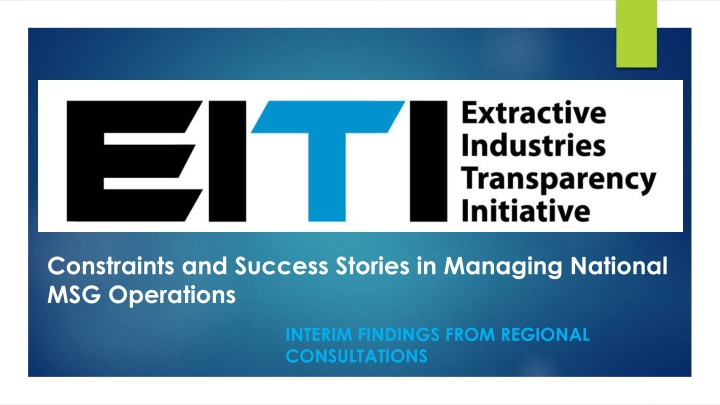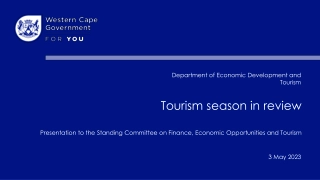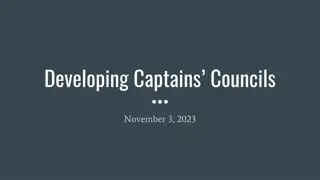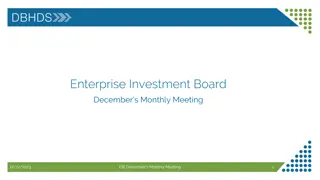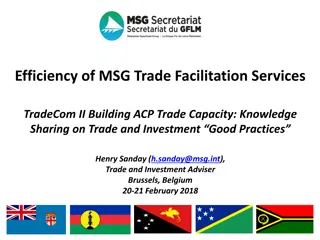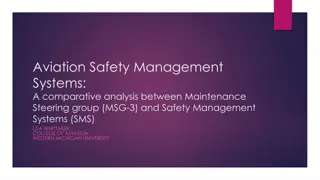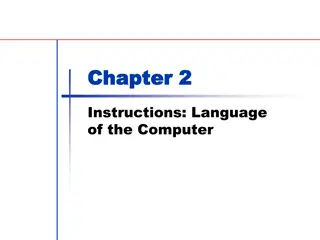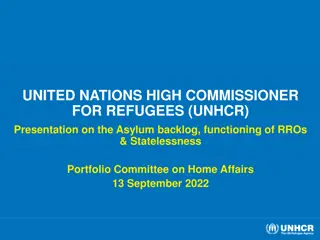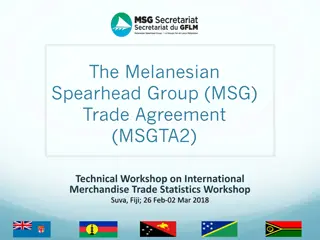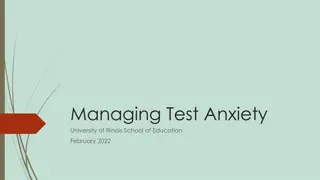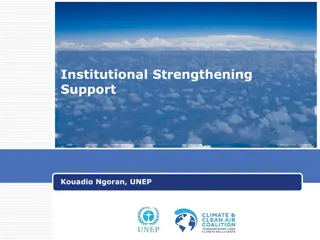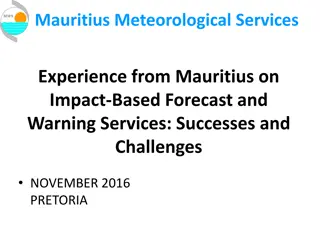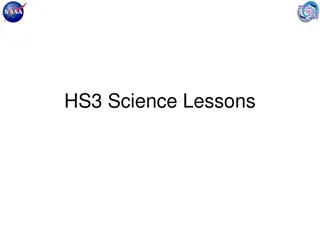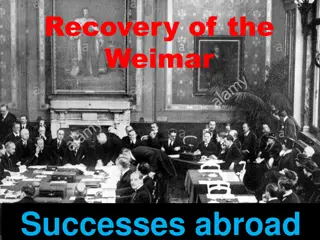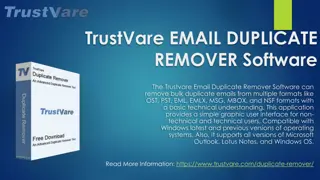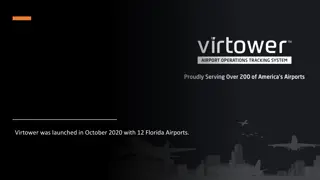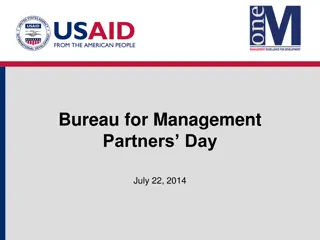Challenges and Successes in Managing National MSG Operations
Interim findings from regional consultations highlight key constraints and success stories in managing Multi-Stakeholder Group (MSG) operations for EITI implementation. Challenges include meaningful engagement, governance structures, and membership dynamics, while successes stem from effective multi-stakeholder oversight. The consultations aim to address common governance challenges and drive effective EITI processes.
Download Presentation

Please find below an Image/Link to download the presentation.
The content on the website is provided AS IS for your information and personal use only. It may not be sold, licensed, or shared on other websites without obtaining consent from the author.If you encounter any issues during the download, it is possible that the publisher has removed the file from their server.
You are allowed to download the files provided on this website for personal or commercial use, subject to the condition that they are used lawfully. All files are the property of their respective owners.
The content on the website is provided AS IS for your information and personal use only. It may not be sold, licensed, or shared on other websites without obtaining consent from the author.
E N D
Presentation Transcript
Constraints and Success Stories in Managing National MSG Operations INTERIM FINDINGS FROM REGIONAL CONSULTATIONS
EITI Standard Requirement 1 Overview: The EITI requires effective multi-stakeholder oversight, including a functioning multi-stakeholder group that involves the government, companies, and the full, independent, active and effective participation of civil society. The key requirements related to multi-stakeholder oversight include: (1.1) government engagement; (1.2) industry engagement; (1.3) civil society engagement; (1.4) the establishment and functioning of a multi-stakeholder group; and (1.5) an agreed work plan with clear objectives for EITI implementation, and a timetable that is aligned with the deadlines established by the EITI Board.
Key Constraints identified through Validation Meaningful constituency engagement in MSGs Commitment and participation National EITI organizational governance structures Mandates and duties of MSGs and National Secretariats Frequency and strategic purpose of meetings Protocols and practices for working together Membership turnover Responsibilities and accountabilities of the NC in particular Information-sharing and engagement of wider constituency groups by MSG stakeholder representatives
Regional consultations on MSG governance (Sept-Dec 2017): Interim Findings Participation to date: 35 stakeholders from 23 countries, some mixed constituencies Better understanding common governance challenges faced by national EITI structures and identifying key factors contributing to successes or malfunctions in driving effective EITI processes Compendium of good practices
Implementation determined at multiple levels: Opportunities & Barriers MSG members (incentives & capacity) MSG organizational dynamics (consensus building, decision- making) Country Socio-Political Environment Accountability to EITI Standard
Challenges in recruitment, retention and refreshment of informed, actively contributing and committed members: Lack of technical understanding of wide range of complex issues Lack of awareness of EITI and its full transformational potential Lack of broad-based expertise on extractive sector (civil society) Competing priorities for senior organizational leaders stretched across demanding institutional roles; proxies without authority(especially government) Lack of material resources to participate Depending on levels of Per Diems for meeting attendance, conflict of interest concerns MSG Members Incentives and Capacities
Good practices to foster recruitment, retention and refreshment of informed, actively contributing and committed members: Trust building (focus on results and impact, empower credible and inclusive leadership, joint activities such as study tours) MSG Members Incentives and Capacities Raise/maintain high level of EITI profile Customize and personalize messaging to the interests of different MSG constituencies (clarify key decision parameters and highlight relevance to particular members/stakeholder groups) Integrate new members as quickly and thoroughly as possible Identify the right messenger (unlock communications channel, including through informal networks)
Challenges in execution of MSG functions (policy oversight and implementation) MSG Organizational Effectiveness Group dynamics and work processes Disagreements on substantive priorities among stakeholder groups (how far how fast ) Tension between inclusiveness and efficiency Weak ToRs (e.g. on tenure and representation duties, observer policies, information-sharing outside MSG etc.) to align expectations and/or lack of enforcement Inadequate leadership capacity to build trust in a multistakeholder setting (in some cases, government members struggle to reconcile MSH norms with their policymaking functions) Strategic use of time and resources (communication flows, agenda design, timing and nature of meetings, use of working groups, etc.)
Opportunities for effective execution of MSG functions (policy oversight and implementation) Have clarity on mission, objectives and ground rules (e.g. how to share information, number and privileges of observers, etc.) Efficient and strategic use of time and resources (clear alternates vested with decision-making authority, use working groups, use convening power of chair to deal with trickiest issues, peg MSG meetings to key benchmarks and decision points) Awareness-raising and dialogue capacity building (intensive communications and outreach efforts that are not (only) one-way messaging but include: MSG Organizational Effectiveness Group dynamics and work processes stakeholder mapping Raising funds Increasing technical acumen on foundational issues and specific EITI requirements Promote internal coordination among constituencies
Government commitment strong factor in motivating other stakeholder groups and maintaining momentum Enabling Environment Social, political and institutional context for reform Active participation in MSG No perception of undue interference in MSG membership and secretariat operations Good faith follow-up to findings of irregularities A strong MSG that has a track-record of good collaboration can use that social capital to weather moments of uncertainty ( the Goodwill Bank )
National Secretariats Provide technical expertise and operational support + strategic communications, fundraising, capacity building and stakeholder mapping and mobilization. Need to be staffed and resourced to have: Political acumen Organizational and facilitation skills Sector knowledge Need greater clarity on mandates and duties: Clearer accountabilities Avoid overstepping into agenda setting or stepping back in the face of problems and potentially taking blame for failures Opportunities and tensions that come with dual hatting
I think of the EITI as a human body. The Secretariat is the arms and legs while the MSG is the heart and soul. If the arms cannot implement what the core of the body wants to do you run into problems. Vice versa, you don t get good results if the heart is weak. PARTICIPANTINMSGGOVERNANCECONSULTATION, OCTOBER 2017
